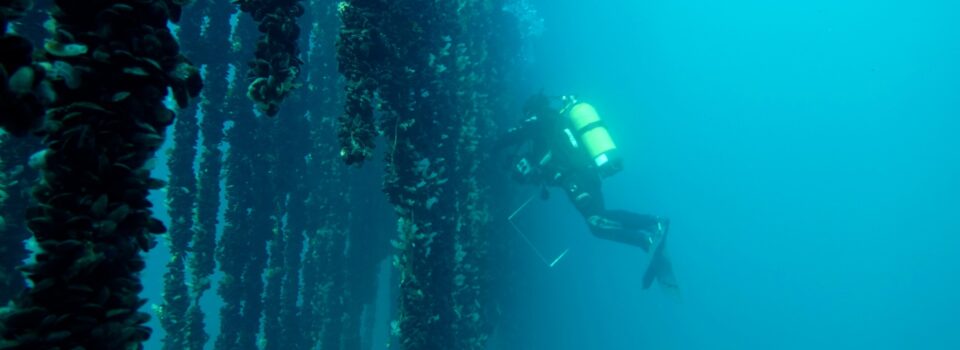Habitat-forming organisms, benthic enhancement and conservation aquaculture for the sustainability of the marine economy of our country at ISSESR7
October 14th, 20247th Symposium of Stock Enhancement and Sea Ranching
With a selection of around 60 research projects, including 8 keynote lectures and posters, registration remains open to participate. The sessions will have simultaneous translation ISSESR7 will be held at the Club House Rooms of the Cabaña del Lago Hotel in Puerto Varas between Tuesday, November 5 and Thursday, November 8.
Between November 5 and 8, ISSESR7 (7th International Symposium of Stock Enhancement and Sea Ranching) will be held, organized by the Institute for Fisheries Development (IFOP). This symposium focuses on the dissemination and transfer of the sciences of stock enhancement, restocking and conservation assisted by aquaculture to improve the sustainability of the marine economy. In its seventh and first edition in Latin America, a special emphasis is placed on conservation and restoration aquaculture for the improvement of benthic species.
Thus, recent advances in improving the stock of habitat-forming species will be one of the topics of the ISSESR7 program, where the presentations by Dr. Andrew Jeffs (Faculty of Science, University of Auckland) entitled: “Lessons learned from the restoration of overexploited mussel reefs in New Zealand; and the presentation by Dr. Emilee Benjamin (Institute of Marine Science, University of Auckland) “Reviving the seabed: Enriching biodiversity and habitat complexity with bivalve shells from aquaculture. Among the national exhibitors, Dr. Carlos Molinet (UACh/INCAR) will contribute with “Use of restorative aquaculture to reduce the impacts of the invasive anemone Metridium senile on local sea urchin banks” and Dr. Luis Henríquez (IFOP) with the presentation “Banks under crops – Opportunities for habitat improvement and species abundance in small-scale mussel aquaculture”
In a similar vein, this time, addressing the restoration of oyster banks, the keynote lecture by Dr. Edward Camp (University of Florida, School of Forest Resources and Conservation) will be presented, entitled: Combining oyster improvement, fishery management and aquaculture to favor fisheries and ecosystems; and the presentation “Multidimensional approach for restocking and restoration of natural banks in open access areas subject to benthic resource management plans: the case study of Ancud Bay. Ricardo Riquelme (Associate Researcher, Universidad Santo Tomás).
Currently, the concepts of conservation and restoration aquaculture refer to the planned use of crops for the protection of a natural resource (Froelich et al., 2017), also seeking to design an aquaculture capable of generating positive effects on ecological, economic and social needs, mitigating, in turn, the negative effects of the unsustainable use of the ecosystem (Theuerkauf et al., 2019; Carranza et al., 2020). In this context, the country’s mussel farming based on the intensive cultivation of “ecosystem engineers” such as mussels has advantages. This bivalve species is capable of generating biogenic habitats (emergent banks) under the cultivation facilities, where they can recruit and inhabit benthic invertebrates of interest, such as sea urchins, crabs and other edible bivalves. Similarly, macroalgae aquaculture meets conservation objectives as it can also generate habitat usable by invertebrate and fish species, mitigating the effect of climate change stressors by releasing oxygen and utilizing nitrogen, phosphorus and carbon from the water column. Consequently, the adoption and development of this aquaculture concept capable of generating biomass, and in turn, a resource for environmental restoration, may become increasingly relevant to socio-economies based on the use and extraction of natural resources from the sea.
ISSESR7 also includes advances in animal release strategies and post-release ecology, the human dimension in restocking, perspectives on long-term assessments, hatchery rearing, domestication and fitness, artificial habitats and marine ranching, as well as strategic alliances between stakeholders for the future. In celebration of the 60th anniversary of the creation of the IFOP, we present an approach that strategically combines fisheries and aquaculture sciences, as a relevant topic for the development of tools that reduce negative effects on the ecosystem linked to the economic growth of today’s society.
- Seven Ways for Falling: Reconstructing Four Decades of Stock Data for Key Commercial Species in Southern Chile. Dr. Luis Outeiro.
- Framing the Integration of Social and Human Dimensions in Conservation Hatcheries and Stocking Program Management. Dra. Hannah Harrison.
- Current State of Chilean fisheries. Dr. Carlos Montenegro .
- Reflections on community-based fisheries management across socio-economic divides: Fishers’ perceptions on sustainability and management in Australia and Vanuatu. Dra. Clara Obregón (modalidad virtual).
- The Beauty of Interactions: The Hologenome in Marine Organisms and its Potential Use in Restorative Aquaculture. Dr. Cristian Gallardo-Escárate.
- Advancing Hatchery Management: Strategies for Enhancing Hatchery Fish Fitness, Minimizing Wild-Hatchery Interactions, and Exploring Alternative Techniques. Dr. Seth White.
- Combining oyster enhancement, fisheries management, and aquaculture to improve fisheries and ecosystems. Dr. Edward Camp.
- Evaluating artificial reef use and sea ranching systems in China and assessment of future directions: a literature review and meta-analyses. Dr. Zhongxin Wu.
More details about ISSESR7 in the following links:
